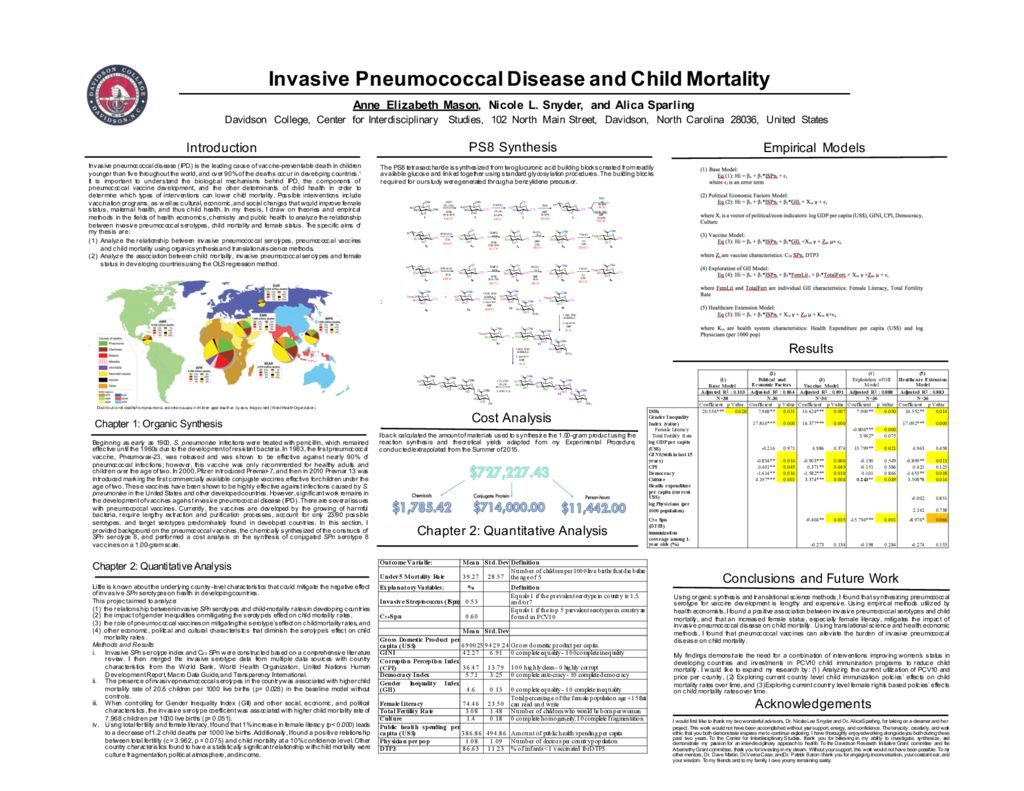Invasive Pneumococcal Disease and Child Mortality
Introduction: Invasive pneumococcal disease is the leading cause of vaccine-preventable death in children younger than five throughout the world, and over 90% of the deaths occur in developing countries (CDC, 2012). It is important to understand the mechanisms behind this problem and how interventions can lower child mortality. Channels available include vaccination programs, as well as cultural/economic/social changes that would improve female status and child health. I draw on theories and empirical methods in the fields of health economics, chemistry and public health. The specific aims of my thesis are: (1) Analyze the relationship between invasive pneumococcal serotypes, pneumococcal vaccines and child mortality using organic synthesis and translational science methods. (2) Analyze the association between child mortality, invasive pneumococcal serotypes and female status in developing countries using the OLS regression method. The findings demonstrated the need for continued gendered policy formation, alongside vaccine program policy approaches. Socio-economic and cultural determinants of health may mitigate or exacerbate the presence invasive pneumococcal serotypes. The findings from the analyses in Part 1 and Part 2 demonstrate the importance for continued inter-disciplinary research to inform future policy formation to address child mortality.
